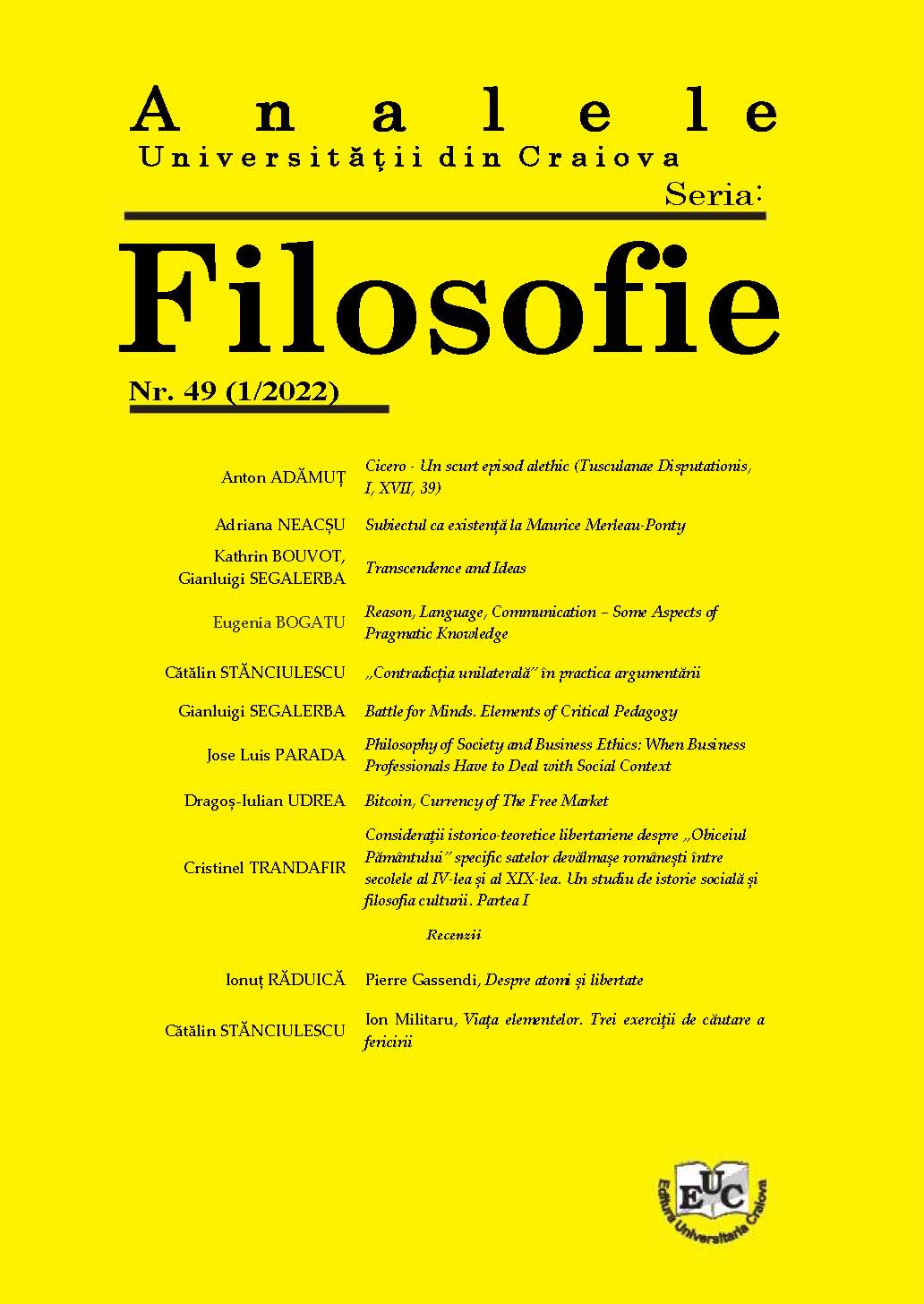CICERO - UN SCURT EPISOD ALETHIC (Tusculanae Disputationis, I, XVII, 39)
DOI:
https://doi.org/10.52846/afucv.vi49.17Cuvinte cheie:
: Cicero, soul, immortality, death, truth, Epicurus, PlatoRezumat
Tusculanae Disputationis seeks to bring stoic philosophy in Rome. It is (mainly in the first of the five books, where I am interested in a fragment that I comment in the text) a dialogue about whether death is evil, thus being a lamentation vitae and a consolatio. The use of Plato, mainly his Phaidros and Phaidon is large, bringing forth the problem of the soul and his immortality, of the continuous movement of the soul as a sign of its immortality. Only what moves itself moves endlessly, because nothing forsakes itself. We notice with astonishment that the Aristotelic theory of primus movens is in fact to be found in Phaidros. All these are shared to us by Cicero and he prefers to be besides Plato and be wrong than be without Plato. Hence the later short alethic episode of Amicus Plato… Anyway, Cicero’s probabilistic perspective does not make him argue the truth, but only makes him say that the truth is neither pure nor simple.


